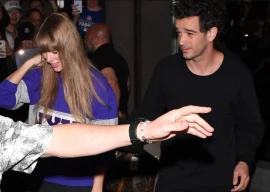
FAISALABAD: The Netherlands will undertake some projects in Pakistan in a bid to enhance the skills of textile producers, but Islamabad should give priority to solving the energy crisis, says the ambassador of the Netherlands.
Speaking at a meeting with office-bearers of the Faisalabad Chamber of Commerce and Industry (FCCI) here on Thursday, Ambassador Gajus Scheltema said the Netherlands would expand a biogas project in Punjab, which had already started. A programme for upgrading technology in the textile industry would also be undertaken, especially in Faisalabad called the Manchester of Pakistan.
Acknowledging the potential of Pakistan, he called on the business community to give their input to policymaking and invest in the energy sector.
He suggested that some companies of the Netherlands had very cheap and best-quality solar system, which could be imported into Pakistan. He also promised that he would promote investment from Dutch companies in Pakistan’s energy sector.
Speaking on the occasion, FCCI President Muzammil Sultan said the Netherlands was a vital trading partner of Pakistan and was a gateway to Europe. He stressed the need for increasing trade between the two countries as the trade volume had dropped instead of increasing in the previous year.
Bilateral trade between the two countries stood at $177.53 million in 2010-11, including $96.50 million worth of exports from Pakistan and $80.99 million of imports from the Netherlands. However, a year earlier, the trade volume was much higher as Pakistan’s exports were worth $328.25 million in 2009-10 and imports were to the tune of $223.98 million.
Training in dairy, food processing
In a separate event at the University of Agriculture Faisalabad (UAF), the ambassador suggested that the Netherlands could help Pakistan by offering fellowship programmes to faculty and students of universities, aimed at building their capacity in horticulture, floriculture, dairy and food processing.
He said horticulture was the core business of his country as it was a recognised hub of flower production as well as exports in the world.
He underscored the need for equipping young professionals with hands-on training by sending them on internship to private dairy farms, so as to make them competitive.
Universities of Holland were very much independent and the government did not interfere in their affairs, he said, adding his embassy could connect institutions of the two countries if they had similar kind of programmes.
Earlier, briefing the ambassador, UAF Vice Chancellor Dr Iqrar Ahmad said UAF was a ‘comprehensive university’ and only 10 to 15 universities, out of 140 in the country, met the definition of comprehensive university.
Speaking about UAF’s agenda of internationalisation, Ahmad said they were trying to build core knowledge bridges and were offering new programmes to give the students more options of specialisation.
With financial assistance from the university, more than 23% of students were getting free education, he said, adding the university’s scientists were working on hundreds of research projects worth Rs1.7 billion.
Published in The Express Tribune, September 21st, 2012.




























































COMMENTS
Comments are moderated and generally will be posted if they are on-topic and not abusive.
For more information, please see our Comments FAQ